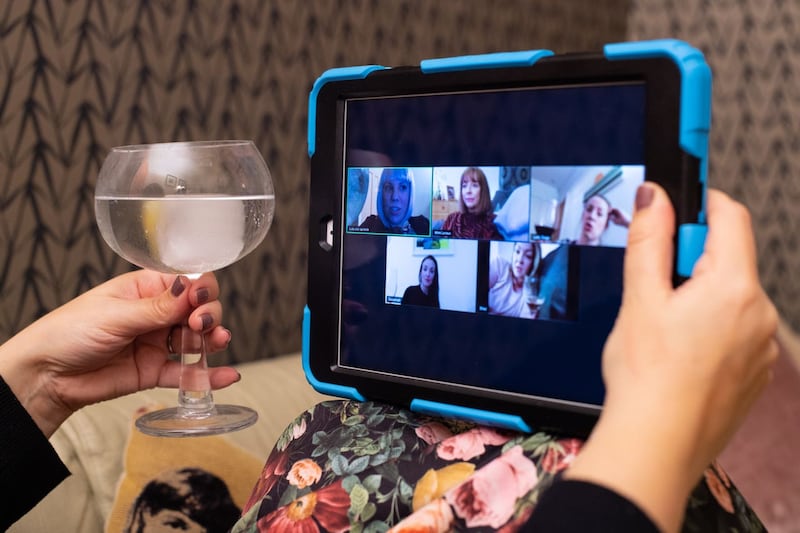Office workers are being encouraged to think before they share after a new study suggested nearly a third have been reprimanded over their use of communications tools such as Zoom and Microsoft Teams.
The research found that 71% admitted to sharing business-critical data, and three quarters said they had shared sensitive personal details.
The use of online communication platforms has drastically increased during the pandemic as millions of people moved to working remotely while trying to stay connected with colleagues and to socialise with friends and family in lockdown.
Get your organisation in shape to prepare and respond to cyber threats https://t.co/bMFYub8iup pic.twitter.com/qsWV7sfWPh
— NCSC UK (@NCSC) March 9, 2021
However, the study warns that many people are not considering the consequences of sharing some data.
The report, published by data management firm Veritas Technologies, showed workers admitted to sharing personal information such as their date of birth, medical and salary information, and even bank details and their Pin.
It also found that workers admitted sharing client details, business plans, Covid test results and company credit card details on such platforms.
The study involved a survey of 12,500 office workers from across 10 countries, including the UK.
UK workers were found to be slightly more thoughtful than others in the survey, but more than half (51%) still said they had shared business-critical data on platforms like Zoom and Teams.
Ajay Bhatia, general manager for digital compliance at Veritas Technologies, said that while it was understandable that some data would be shared, not doing so in the correct way could have implications for both staff and businesses as a whole.

“There are two major challenges with this type of information sharing. Firstly, some of it should never be shared with anyone – no-one should be sharing their Pin, for example,” he said.
“Secondly, some of it should only be shared in the right way. Business information that’s shared without leaving a permanent record can cause legal and compliance issues for companies.
“The same can be true for personal information if it becomes something that you later need for tax or medical reasons – or, worse, if the person you’re chatting with turns out to be scamming you.”
The National Cyber Security Centre (NCSC) has repeatedly warned about the increased risk of cyber criminals and scammers targeting people during the pandemic as people spend more time online and by playing on fears around Covid-19 to trick people into sharing personal information.
According to the Veritas Technologies report, time spent on tools such as Zoom and Teams has increased by around 20% since the start of the pandemic, and Mr Bhatia said it was important people took the time to consider what they were sharing.
“For millions of us, a lot of how we communicate has changed since the pandemic began,” he said.
“But, like the old-fashioned verbal contract that’s ‘not worth the paper it’s written on’, agreements reached on messaging or other apps, without any lasting record, can be risky for all involved.
“Each of us, as users of this technology, should be thinking whether we’re using the right communications tool for the job to keep ourselves and our employers safe.”






